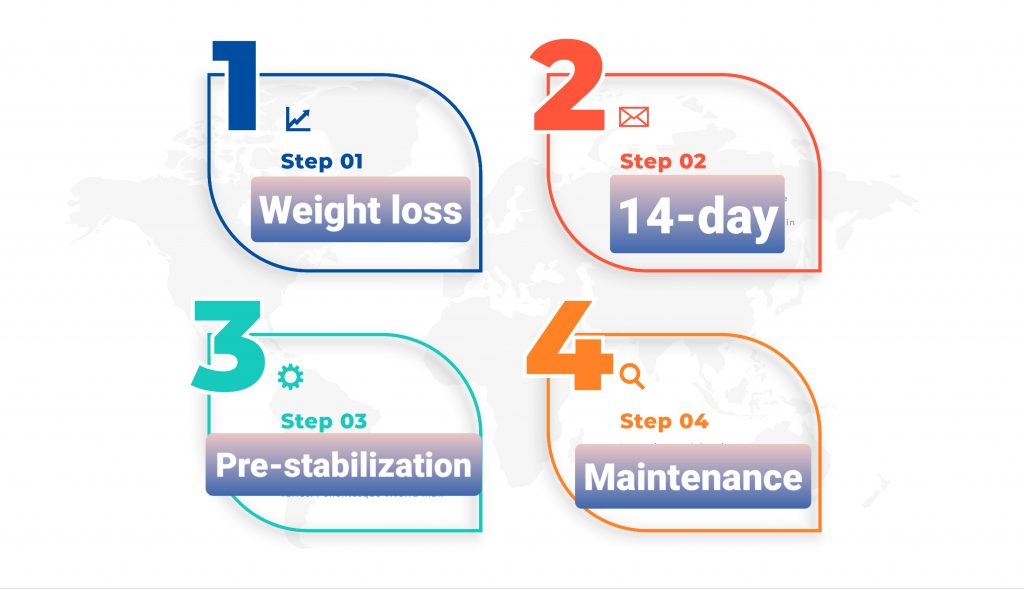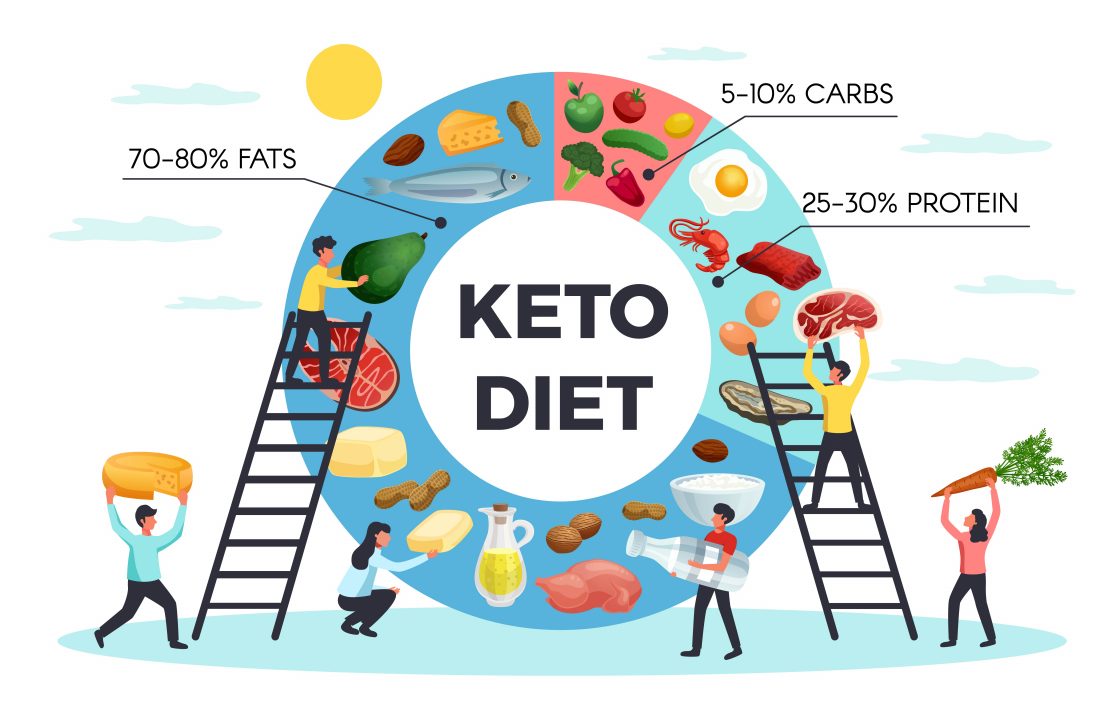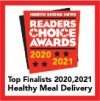The Ideal Protein Diet was created by Dr. Tran Tien Chanh and Olivier Benloulou. Its principles were first used more than 20 years ago by Dr. Tran Tien Chanh, who was looking to create a safer and easier weight loss protocol for his patients.

The Ideal Protein Diet is divided into four unique phases:
- Phase 1: Weight loss
- Phase 2: 14-day
- Phase 3: Pre-stabilization
- Phase 4: Maintenance
- Phase 1: Weight loss
The purpose of phase one, “Weight Loss,” is self-explanatory, and most people will spend the majority of their Ideal Protein journey here. Rather than a prescribed number of days or weeks, this phase is intended to last “until 100% of your weight loss goal is achieved.” This goal will vary from person to person, to be determined in collaboration with your health coach.
During this phase, people are asked to eat:
- An Ideal Protein breakfast.
- An Ideal Protein lunch with 2 cups of selected veggies (see below in the chapter “Foods to Eat”).
- An 8-ounce (225-gram) portion of protein with 2 cups of selected veggies.
- An Ideal Protein snack.
These Ideal Protein meals can only be purchased through authorized clinics or centers. Most meals provide 20 grams of protein and less than 200 calories per serving.
You can eat unlimited raw vegetables from their specified list with lunch and dinner.
In addition to these foods, the diet encourages using sea salt for seasoning, plus vitamin and mineral supplements like calcium, magnesium, and potassium.
- Phase 2: 14 Days
Once you’ve achieved your weight loss goal, it’s time to move on to phase two. This 14-day module is only slightly modified from phase one, with the following daily guidelines:
- Your choice of two Ideal Protein foods
- 8 oz. servings of protein at both lunch and dinner
- Four cups of approved vegetables
- Unlimited approved raw vegetables and lettuce
- Phase 3: Pre-Stabilization
The diet’s third phase prepares for the transition to reintroducing higher amounts of carbohydrates. During this period, which also lasts 14 days, a day’s diet looks like this:
- Your choice of one Ideal Protein food
- 8 oz. whole protein at breakfast, lunch, and dinner
- Four cups of approved vegetables
- Unlimited approved raw vegetables and lettuce
- Phase 4: Maintenance
Finally, you’ll arrive at Ideal Protein’s maintenance phase, which lasts a full year. This module offers a few guiding principles, like limiting combinations of fat and carbs, calculating the right amount of protein for your body weight, and even allowing an “indulgence day.”
Conclusion:
- The Ideal Protein diet cuts out nearly all carbs (leaving you at about 20 grams per day), claiming that “simple and complex carbs can prevent weight loss,” a declaration that fails to recognize that complex carb provide plenty of health benefits. Just like with other low-carb diets, there’s little to no research looking at low-carb diets as a strategy for long-term weight loss.
- One plus is that Ideal Protein recognizing that such a restrictive diet can result in serious vitamin and mineral deficiencies, so supplements are required during the program. However, all the required supplements add up to a lot of money, when you could just be getting the nutrients you need from real food rather than non-nutritious food supplemented with pills.

- Having a coach that you see in person weekly is a great way to hold yourself accountable and make real lifestyle changes, but it worries us that anyone can open a clinic, without any licensing or experience. Working with a registered dietitian is the only way you can be sure that you’re getting evidence-based nutrition advice from a credentialed expert.

- People who don’t like to cook or are looking for a convenient diet might consider the use of prepackaged meals to be a “pro,” but I see them as a drawback of the program. we always recommend eating real foods rather than processed ones.
- Focusing on getting enough protein in your diet can help with weight loss for several reasons. Protein can help you preserve muscle when you’re on a low-calorie diet. It also helps keep you full and can speed up your metabolism. But does that mean you need to limit carbs and eat packaged foods?
- There’s little research looking at the Ideal Protein diet specifically. There is one study of the Ideal Protein diet’s effects listed on their website, but it isn’t published in any peer-reviewed journals.
- If you want to try a low carb, high protein diet, we’d suggest talking with a registered dietitian.





